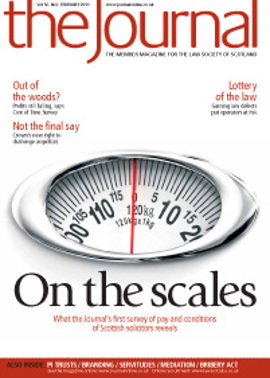Stakes too high

When the Daily Mirror newspaper carried front page coverage in 2001 of supermodel Naomi Campbell leaving a Narcotics Anonymous meeting, with the headline “Naomi: I am a drug addict” emblazoned alongside, Ms Campbell employed her lawyers using the conditional fee arrangement (CFA), or no-win-no-fee system. (Ironically, this system, when it was introduced more than a decade ago, served to provide access to justice for those who could not afford to pay legal fees!) Ms Campbell sued MGN, the publishers, on grounds including that this was confidential personal information, which should not be made public, and that publication was an infringement of her right to privacy. MGN asserted that the publication was of legitimate public interest.
The core issue before the court was whether the Mirror’s publication was legitimate in that the public interest in favour of publication outweighed any public interest in the protection of Ms Campbell’s rights of confidentiality. The House of Lords (by a 3-2 majority), reversing the Court of Appeal, held that the publication of a photograph of Ms Campbell leaving the meeting, in conjunction with the story, was in breach of confidence and an infringement of her right to privacy. The High Court’s award of £3,500 damages was restored.
MGN applied to the European Court of Human Rights under article 10 of the Convention on two grounds, the finding of breach of confidence, and the “disproportionate” success fee of £280,000, resulting from the proceedings before the House of Lords, enjoyed by Ms Campbell’s lawyers as allowed by domestic law.
The first ground failed, for reasons summarised at para 151 of the judgment (MGN Ltd v United Kingdom, Application no 39401/04, 18 January 2011), but the second was upheld, with the success fee coming under particular attack. In brief, it was made clear that excessive costs do inhibit the freedom of the press; that the system which permits 100% success fees must be changed; and indeed that this judgment carries far-reaching implications for all civil litigation cases not covered by legal aid.
Unnecessary interference
Under article 10, in order for the state to interfere with the right to freedom of expression, three conditions must be satisfied: (1) the interference must be prescribed by law; (2) it must pursue a legitimate aim; (3) it must be necessary in a democratic society. The ECtHR decided that the costs ruling was a breach of article 10 on the third ground, holding that the applicable success fees were not necessary in a democratic society.
In doing so, it cited the lengthy discussions leading to Lord Justice Jackson’s Review of Civil Litigation Costs, published in January 2010. The Review proposed “a coherent package of interlocking reforms, designed to control costs and promote access to justice”. It criticised the CFA system on a number of fronts, stating that there are no qualifying requirements for claimants to enter into CFAs; also that there is no incentive for the claimant to attempt to control legal fees, and that recoverable success fees have a “blackmail” effect on parties, pressurising them to settle rather than go to court.
There is no immediate domestic impact to this decision; it is binding on the Government, not on the courts directly. But the current CFA system in England & Wales, allowing fees at the rate of 100% is now obsolete, effectively. The Government must reform it in order to avoid being in breach of Convention rights. The previous Government laid a draft CFA (Amendment) Order, which proposed to reduce the maximum success fee in defamation cases to 10%; this fell due to the 2010 General Election. Last month the Deputy Prime Minister promised action to reform the libel laws, including on costs. We do not yet know what might be considered a reasonable percentage success fee. It is worth noting, however, that only fees at the rate of 100% have been ruled incompatible and that not all success fees are now inevitably inconsistent with article 10.
Any defendant challenging a costs order will now have this judgment to strengthen their case. There is a significant increase in safety for those who have hitherto been vulnerable to the threat of expensive libel or privacy actions: John Kampfer, chief executive of Index on Censorship, stated that the ruling “removes one of the greatest barriers to free speech in the UK”. Further, any defendant in a civil case may argue that their right to a fair trial as guaranteed by article 6, is infringed by a punitive system of costs, which forces them to settle. This was a point made by Lord Hoffmann, when rejecting the applicant’s appeal on costs in 2005.
In this issue
- Mutuality in action
- Tough choices
- Show us the files
- RoS launch business eZine
- Rewards of the job
- Pressure points
- Measure for measure
- Rage against the machine?
- Second bite at the cherry
- Personal injury trusts: benefits and PITfalls
- Countdown for Legal Aid Online
- Training: SYLA will play its part
- Law reform update
- Branding or bragging?
- The learning curve
- Ask Ash
- Mediating retirement
- CICA - a question of timing
- The evidence against
- Fought all the way
- Family friendly
- Stakes too high
- Much ado about plenty
- Limits of authority
- Scottish Solicitors' Discipline Tribunal
- Website review
- Book reviews
- Straight dealing
- Servitudes, developers and flexible rights






